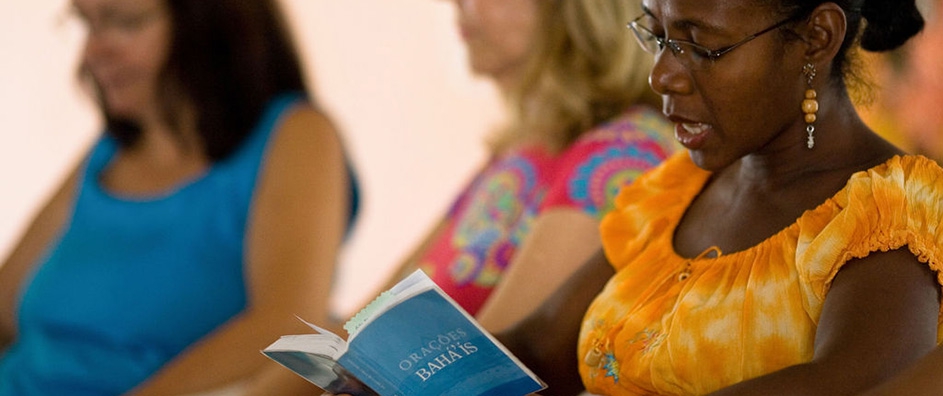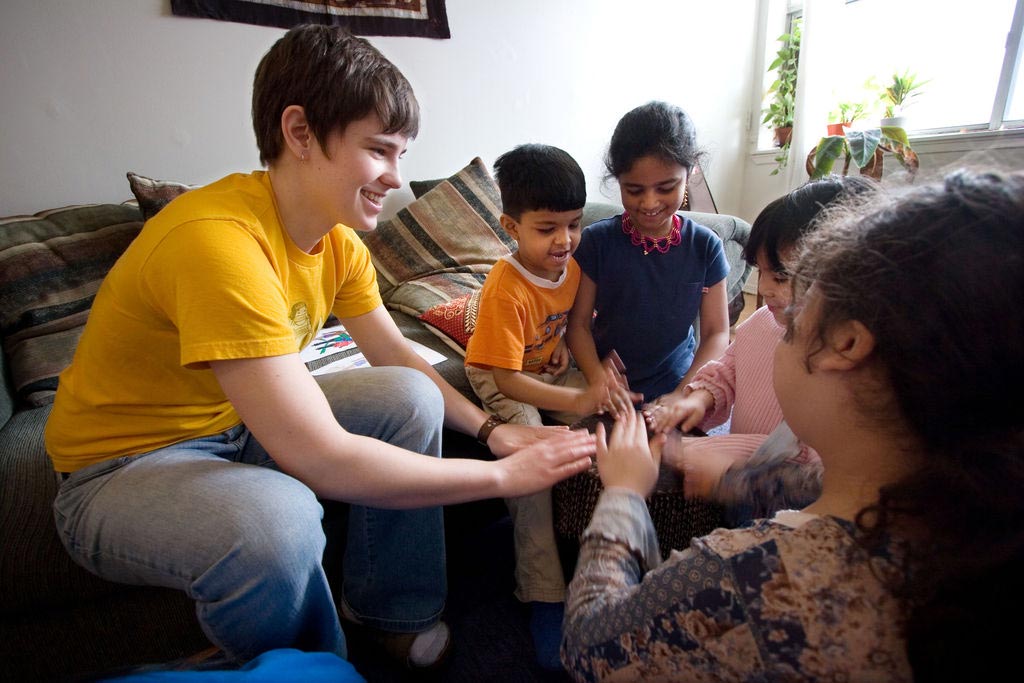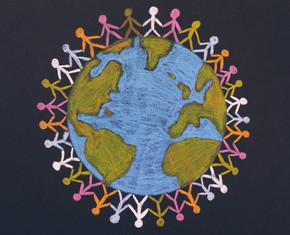The views expressed in our content reflect individual perspectives and do not represent the authoritative views of the Baha'i Faith.
The experience of a new faith begins in earnest when you enter it.
If you’re lucky, as I was, when you first come into the Baha’i community you will see remarkable diversity. Of course you’ll meet good, warm, wonderful people – many religious communities have that – but in a Baha’i community, you’ll realize that they have come from incredibly different backgrounds to celebrate the dawn of a new Day.
As I’ve mentioned, my first Baha’i community — about half black and half white with a few brown people added in — contained people of Jewish, Christian, Muslim and Hindu background who had found their religion’s fulfillment in the Baha’i Faith. It had mechanics, construction workers, students, salesmen, university professors, secretaries, executives, retired people, kids, and many others. I had never encountered anything like it.
I was struck by its beauty.
Of course, community composition varies by prevailing demographics, but in general, the Baha’i community is very diverse. I had never seen such diversity and love mixed together. The coalescing of cultures and classes and races made each gathering a gorgeous garden of colors and opinions and backgrounds. Abdu’l-Baha describes the garden of the Baha’i Faith this way:
When the rain, the heat, the sun and the gentle zephyrs cooperate with each other, what beautiful gardens are produced! How the various kinds of hyacinths, flowers, trees and plants associate with each other and are conducive to the adornment and charm of one another! Hence the oneness of the bounty of the sun, the oneness of rain and the oneness of the breeze have so overcome all other considerations, that the variety of hues, fragrances and tastes have increased the adornment, the attraction and sweetness of the whole. In a similar manner, when the divine Collective Center and the outpouring of the Sun of Reality and the breaths of the Holy Spirit are brought together, the variety of races and the differences existing between countries will become the cause of the embellishment, decoration and elegance of the world of humanity. – Baha’i World Faith, p. 420.
When I began participating in my new Baha’i community, the meetings I attended were filled with love, with prayers, with readings from the Baha’i writings, with deep discussions and action planning. The Baha’is were energetically engaged in their community life, enthusiastic about it and committed to its growth and dynamism. I learned that many Baha’is, attempting to follow the wonderful example of Abdu’l-Baha, tried to lead service-minded lives in their vocations and in their free time as well – caring for the poor or the ill, helping the downtrodden and the oppressed, educating children, working for racial unity or peace or the environment.
I learned that Baha’is often had a sophisticated understanding about the problems of people and the planet, but that Baha’is tended toward optimism about their ultimate prospects. They generally expressed hope, probably because the Baha’i teachings themselves are hopeful about humanity’s future, but also because of their commitment to positive spiritual and social change. Most of the Baha’i meetings I attended featured lots of happiness and laughter.
Study of the Baha’i writings, writings of great depth addressing every modern problem, had worked a miraculous transformation of sorts in the Baha’i communities I visited. People with little formal education conversed with equal or better understanding than people with advanced degrees. All became students of the writings and participated on equal footing. We all learned from each other as each shared their rich life’s experiences. I was enthralled.
To sum it up, my religious experience took a giant, exciting leap from passive to active. I no longer sat in pews on Sunday and listened — I sat in a circle and participated in deep discussions, and my engagement went from weekends to any day of the week. My new faith became an integral part of my life. Of course Christians and others have scriptural study groups, but the Baha’i writings not only contain familiar moral teachings, they also contain a mesmerizing recent history and teachings designed for a new social order.
For me, one of these new teachings — that we have no need for clergy – took some getting used to. I talk about that next.

















Comments
Sign in or create an account
Continue with Googleor